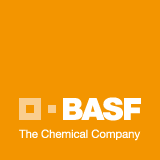Jan 15 2009
BASF plans to permanently close its production facility for 1,4-butanediol (BDO) and tetrahydrofuran (THF) in Ulsan, which has been temporarily shut down since August 2008, and the company will continue to supply related customers via its global network. BASF’s PolyTHF plant in Ulsan will continue to operate with feedstock from the network accordingly.

“BASF Korea will work closely with local labor representatives to minimize the impact of the shutdown,” said Dr. Peter Schuhmacher, responsible for the Asia-Pacific business of BASF’s Intermediates operating division. 27 people work at the affected plant and BASF has started to communicate with labor unions already. BASF currently employs 940 people in Korea.
BASF will continue to maintain a reliable supply of BDO and THF to its PolyTHF plant at Ulsan from BASF’s global network, including the company’s THF plant in Caojing, China, which is operating with a new BASF-owned technology. Dr. Schuhmacher emphasized, ”The announced move strengthens our global leadership position in PolyTHF. We now supply BDO and THF to Ulsan from BASF plants with access to more economic feedstock sources.”
Using THF as a major feedstock the Ulsan PolyTHF plant provides standard PolyTHF grades for high quality spandex fibers. The plant, inaugurated in 1998, is also a production hub for specialty PolyTHF grades for adhesives, coatings, and thermoplastic elastomers.
BASF produces THF at its plants in Ludwigshafen (Germany), Geismar (USA), Caojing (China) and Kuantan (Malaysia). With BDO produced at these plants and at BASF’s Chiba (Japan) site, the total global capacity for BDO equivalents amounts to 535.000 metric tons per year. In addition to Ulsan, BASF produces PolyTHF in Ludwigshafen, Geismar and Caojing with an annual capacity of 185.000 metric tons.
BASF Korea is a wholly owned subsidiary of BASF, currently employing 940 employees at six production sites and at its Seoul office. BASF Korea maintains three production sites in Ulsan, and one each in Yeosu, Gunsan and Ansan, under four BASF units: Styrenics, Polyurethanes, Performance Chemicals, and Specialty chemicals.